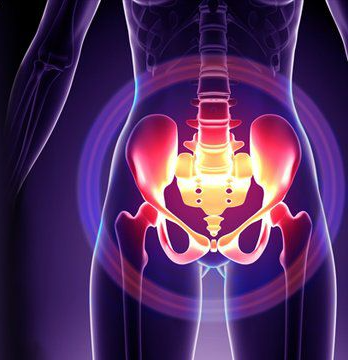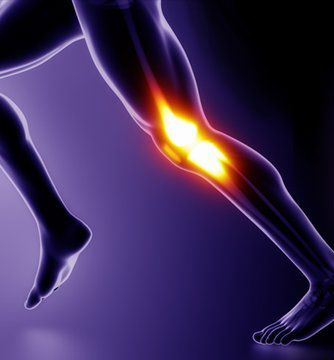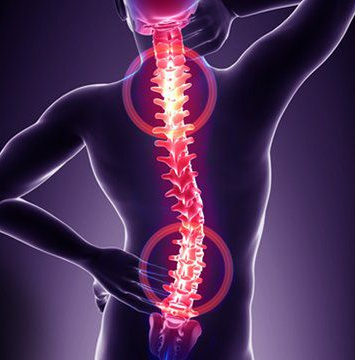Pelvic Health
Women’s Pelvic Health Physiotherapy
Pelvic floor dysfunction can be a contributory factor to women’s health in many ways. Therefore, we provide specialist pelvic physiotherapy to assess and treat pelvic organ prolapse, urinary incontinence, bowel constipation and dysfunction, pelvic pain and specific ante-natal / post-natal concerns. Also, we assess and treat many of the symptoms related to physical changes during and after the menopause. We do this via our well woman screening and Mummy Check. The initial consultation and follow up treatments at Rachel Disley Physiotherapy are all of similar time lengths so we can adjust, progress and maximise every aspect of your treatment at each session. We will work to make every treatment and training session as efficient as possible. Every assessment will identify your main concerns and the most efficient treatment to achieve your individual goals.
Our complete physiotherapy approach is to combine specialist treatment of pelvic floor dysfunction with mainstream musculoskeletal physiotherapy practice. We believe that everyone deserves the professional opinion of a specialist pelvic health physiotherapist that sets goals that are specific to you.
- Bladder
- Bowel
- Pelvic Pain
- Prolapse
- Menopause
- Pregnancy
Your Pelvic Physiotherapy
Initial Consultation
At the initial assessment, I will ask you to describe your symptoms, how long and how they are affecting you. If you don't experience any symptoms don't worry, as a pelvic health/lifestyle assessment can be a useful screening for potential future problems, and identify any lifestyle factors that can be adjusted to maximise your pelvic health throughout life e.g. to prevent prolapse, constipation or incontinence.
I will ask you questions about your bladder, bowel, feeling of pelvic organ prolapse or pain. Also, I will ask about your medical history, pregnancy or gynaecological history and other surgical history. This will help to identify problem areas that will need attention during your physical assessment and treatment planning. I will ask you questions about your weekly schedule and the activities you like to do. Then activities can be identified that are important to you and what your individual goals are for the future.
The physical examination will involve a full assessment of your posture and breathing. Then we will look at how you move in your daily function and when you are active – lunging, bending, lifting, walking, running, jumping, etc.
Finally, a physical examination in pelvic health can involve observation and/or an internal pelvic examination (vaginal/anal). Written consent and chaperoning will be discussed prior to any intimate examination as per the POGP and CSP guidelines.
During this assessment we may use electromyography (Neurotrac Myoplus 4 and Microsoft Software 5.2) to get the best picture of your pelvic floor function at rest, and during function.
You will have the opportunity to discuss this process in more detail with me, and please feel free to ask questions.
Pricing
*Individual treatment plans will be discussed at the initial consultation, leading to specific goal setting to give you peace of mind.
For all areas of treatment bank transfer and credit/debit cards contactless payments are accepted.
Bladder Pelvic Health Physiotherapy
Urinary incontinence (UI) affects up to 50% of women, the majority of whom have stress urinary incontinence (SUI) (Markland et al., 2008). This involuntary leakage of urine during exertion (e.g., coughing, running, jumping). First line of best practice treatment for bladder incontinence includes physiotherapist-supervised pelvic floor muscle training to relax and/or strengthen the pelvic floor, bladder retraining/drilling to improve toileting habits and dietary advice. Pessary use can also be used alongside pelvic floor retraining.
Types of bladder symptoms treated:
- Urinary Urgency
- Urge Incontinence
- Stress Incontinence
- Mixed Incontinence – both urge and stress incontinence
- Persistent Bladder Pain/ Bladder Pain Syndrome
Pregnancy Pelvic Health Physiotherapy
ANTE NATAL PHYSIOTHERAPY
To maximise your physical and mental health during pregnancy keeping active is helpful. 30 minutes of moderate exercise daily is recommended throughout pregnancy. Life, fatigue and changes to your body can get in the way of carrying out day to day activities.
Therefore a check at each trimester of your pregnancy is recommended. Pelvic and Back pain, urinary leaking or urgency and bowel changes are common conditions that occur during pregnancy. Physiotherapy can help to restore a better posture and strength, relieve pain symptoms and improve urinary symptoms ready for childbirth and beyond.
- Pelvic Health Assessment
- Posture Assessment
- Low back and Hip Assessment
- Gait Assessment
- Abdominal Muscle Assessment
- Diastasis Recti Assessment
- Breathing and Diaphragm Assessment
- Treatment Plan and Goal Setting for Pregnancy and Beyond
POST NATAL PHYSIOTHERAPY
Before returning to exercise after your baby is born, you should visit a Women’s Health Physiotherapist to assess your pelvic floor function, abdominal muscle strength, posture and alignment.
Low impact exercise is recommended when breastfeeding, altered hormone levels and pelvic muscle and ligament changes following child birth (vaginal or caesarean section deliveries) can increase risk of injury during higher impact exercises.
THE MUMMY CHECK
- Pelvic Health Assessment
- Low back and Hip Assessment
- Gait Assessment
- Abdominal Muscle Assessment
- Diastasis Recti Assessment
- Breathing and Diaphragm Assessment
- Liasing with local specialist Menopause GP/Gynaecologists/Colorectal Surgeons to maximise your health
- Treatment plan and Goal setting for return to all activities of your choice.
Rachel's Pelvic Health Story
I have been practising pelvic health physiotherapy since 2006 in Dublin. Prior to this I had unknowingly suffered with stress urinary incontinence and intermittent faecal constipation all my life. This pelvic floor dysfunction was never treated as I thought it was normal until I trained in Pelvic Health in 2006. My interest grew in Pelvic Health, on setting up the women’s health physiotherapy service in Cardiff Nuffield in 2008/9. Then my core interest, was cemented on the birth of my 2 girls in 2010 and 2011. I had my two children while doing a MSc at Cardiff University in Neuromusculoskeletal physiotherapy.
I went into labour during a lecture at the Heath Hospital and politely asked to “leave and head up the Midwifery Led Maternity Unit.” The day before I was told by the sonographer that our child’s head was very large (“enormous”), and therefore it was likely that I was going to need to be induced the next day. I went into a natural labour on the 20th January 2010 and had a healthy girl via a vaginal delivery and a significant Grade III button hole tear of the posterior wall of the vagina and perineum.
Post delivery I was left with faecal urgency and incontinence for many months. I had excellent physiotherapy with Cath George, at Llanough, using a Neurotrac neurostimulation unit and graded exercise programme to assist my very weak pelvic floor via the many great local exercise classes in Penarth.
My faecal incontinence improved and I returned to hockey by October 2010. Then, we had our second healthy girl on December 3rd 2011. This was another vaginal delivery with a minimal tear, Grade 1. Yet on discharge, I was back feeling weak around my pelvis with faecal urgency ( especially walking around the supermarket!). This time rehab was by myself as I was not symptomatic enough to be referred to physiotherapy in the NHS. Over the next 6 months, I rehabbed and gradually got back to full fitness to return to national league hockey. In hindsight, to get back to full fitness took me years rather than months but I was playing the sport I loved so that was good enough to start.
Following these experiences I have a deep understanding of pelvic health physiotherapy from adolescence to post menopause, not just as a therapist but also as someone who has experienced many challenges firsthand, therefore my patients feel I am uniquely positioned to help others navigate similar struggles.
What Clients Say
Pelvic Health Conditions We Treat
Urinary Incontinence – Urgency, Urge Incontinence, Stress Incontinence, Mixed Incontinence
Bladder Pain Syndrome
Functional Constipation
Pelvic Pain
Post Natal Pelvic Floor Dysfunction
Pregnancy Related Pelvic Pain
Pregnancy Related Low Back Pain
Urogynaecology Surgery Prehab and Rehabilitation




